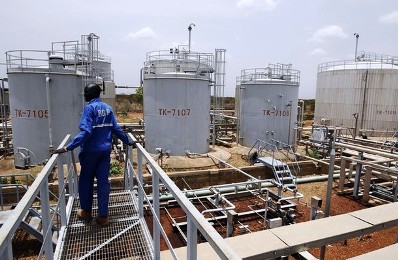Khartoum and Juba agree over resumption of oil production
September 30, 2017 (KHARTOUM) – Juba has agreed with Khartoum to resume production from the oil field in the Unity region, after boosting the security of the troubled region near the Sudanese border.

Speaking at a press forum held in Khartoum on Saturday, South Sudanese Ambassador Mayan Dut Waal disclosed that the two countries agreed to restart production of the oil fields in Ruweng and Northern Liech states.
Sudan will provide power and technical support to resume the production which has been stopped since December 2013.
Waal stressed that the security situation in the region is now stable, adding the government forces are in control of over 80 of the South Sudanese territory.
He further expressed hope to increase oil production to over 300,000 bpd instead of the current production rate which is 130,000 bpd.
The diplomat pointed out that 98 per cent of South Sudan’s revenue comes from oil sales, adding this makes dealing with Khartoum “inevitable” because his country relies on the Sudanese pipeline to export its oil production.
Following the collapse of oil price, the two countries agreed to review a deal reached in 2012 providing that Juba pays 15 dollars for every exported barrel. According to the new deal, the rate of the Sudanese government is flexible and determined according to the oil prices.
“If the price of the oil is like $30, we pay zero, if it is $40, we pay like $9 or $6, and so on and so forth and if it is above $61, we pay $15, so we have a cushion,” South Sudanese Oil Minister Ezekiel Lul Gatkuoth told Bloomberg in February 2017.
Ambassador Waal also explained that the two countries signed another deal providing that will start exporting 54 products to South Sudan within the framework of the trade border deal.
He added that in the near future Sudan will export 173 products through five border crossing points.
The agreement will reconnect the South Sudanese regions again with the north Sudan as the two parts of former Sudan used to trade before the secession in 2011.
Sudanese trade minister Mubarak al-Fadel announced last week that customs and border authorities will meet to discuss the operationalisation of the crossing points.
Also, it was agreed that the Sudan Central Bank branch in Kosti will facilitate the financial transactions related to the border trade between the two countries.
(ST)
